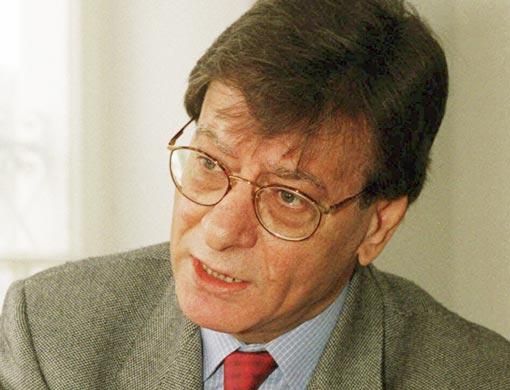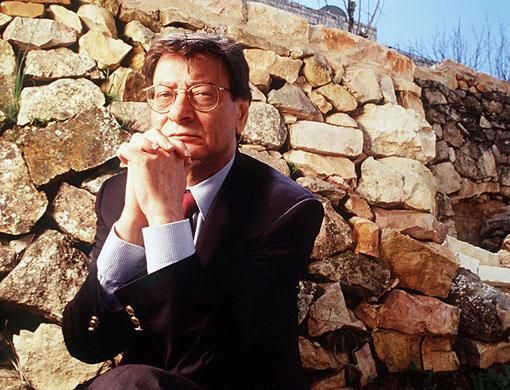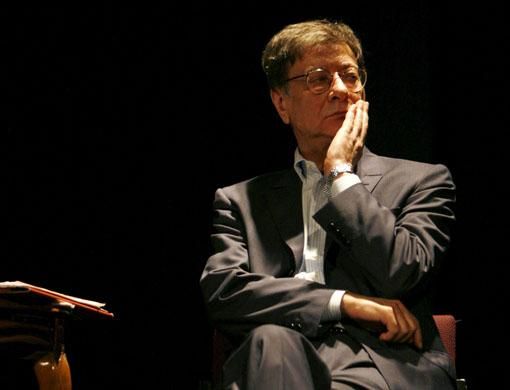Ramallah, West Bank: Mahmoud Darwish, the world's most recognised Palestinian poet, died on Saturday in a US hospital, Arabic television channels reported.
Palestinians observed three days of national mourning. A state funeral is to be held on Tuesday in the West Bank City of Ramallah.
Darwish died in Texas following heart surgery, a doctor at the Houston hospital where he was treated told Al Arabiya television.
The 67-year-old poet, known as the national poet of Palestinians, had a history of heart problems, and has been operated on twice in the past. A poet friend of Darwish said he had asked not to be resuscitated if the surgery did not succeed.
Culture Minister Tahani Abu Dakka said Darwish's funeral is likely to be the biggest since Palestine Liberation Organisation leader Yasser Arafat died in 2004.
The Palestinian Authority plans to build a memorial at Darwish's grave, featuring his works and a statue of him, another official said.
Darwish is a Palestinian cultural icon who has eloquently described his people's struggle for independence.
Darwish has published more than two dozen books of poetry and prose rooted in his experience of Palestinian exile in a career spanning nearly five decades.
A sequence of poetic prose written about his experience living in Beirut during the Israeli invasion and bombardment of Lebanon in 1982 was translated into English in 1995 under the title Memory for Forgetfulness.
He was among that half of the Arab population of Palestine driven from their homes, in his family's case near the port of Haifa. They later returned to live in the area.
He has been living in the West Bank town of Ramallah since 1995.
Widely seen as the Palestinian "national poet", Darwish's work has been much translated and has won new generations of admirers with work that evokes not just the pain of Palestinians displaced, as he was himself, by the foundation of Israel 60 years ago, but also subtle paradoxes and broader human themes.
He enjoyed a following across the Arab world, where he had the kind of readership contemporary poets in English and other European languages, eclipsed by novelists, can only dream of.
"His death is a loss to the Palestinian people, to the Palestinian cause and to freedom-loving people around the world," said Ahmad Ebrahim, a banker in Ramallah.
Exile
Jailed several times and stripped of an Israeli passport, Darwish left in 1971 to study in the Soviet Union. Exile in Cairo, Beirut and Paris followed. Darwish also served on the executive committee of the Palestine Liberation Organisation.
But he broke with PLO leader Yasser Arafat and resigned his post in protest at the 1993 Oslo accords with Israel by which the Palestinians agreed to establish a state alongside Israel.
Fifteen years on, revived negotiations appear to most observers to be going nowhere. Further violence, a bitter split between Abbas in the West Bank and his Islamist rivals in the Gaza Strip and continued Israeli settlement expansion in the West Bank leaves few Palestinians hopeful of securing a state.
Last month, Darwish told Reuters his latest writing was imbued with a sarcastic humour and a sense of both Israelis and Palestinians, however antagonistic, sharing an uncertain future.
"Sarcasm helps me overcome the harshness of the reality we live, eases the pain of scars and makes people smile," he said. "The sarcasm is not only related to today's reality but also to history. History laughs at both the victim and the aggressor."
In a new poem called The Written Script, Darwish relates a dialogue between a victim and his enemy who fall into a pit together and are waiting for someone to throw them a lifeline.
He sees Israelis bent on suicide, taking Palestinians with them, if the occupation of the West Bank goes on: "A killer and his victim die together in one hole," he says in the piece.
A lifelong smoker, Darwish had suffered previous serious ill health, twice undergoing heart surgery in the past.
In a recent poem The Dice Thrower, Darwish told the story of his life and said death was coming yet he clung to life: "To Life I say: Go slow, wait for me until the drunkenness dries in my glass/ I have no role in what I was or who I will be/ It is chance and chance has no name/ I call the doctor 10 minutes before the death, 10 minutes are sufficient to live by chance."
Your comments
Yes, another symbol of the Palestinian Dreams went off. God bless him
and the people for whom he spoken for.
Sherief
Trivandrum,India
Posted: August 10, 2008, 08:03















